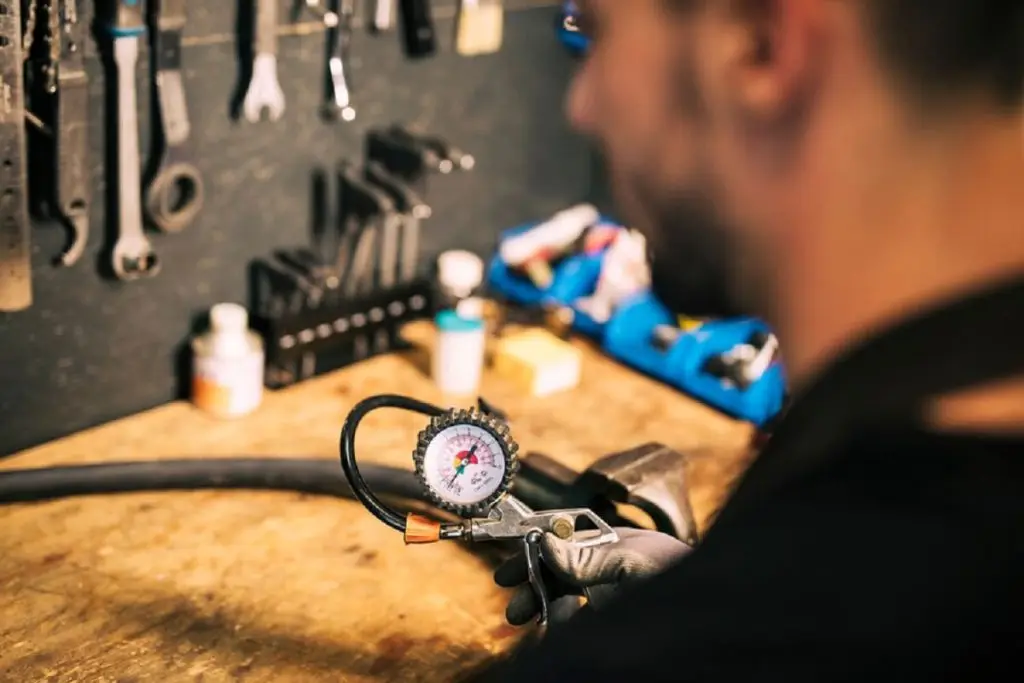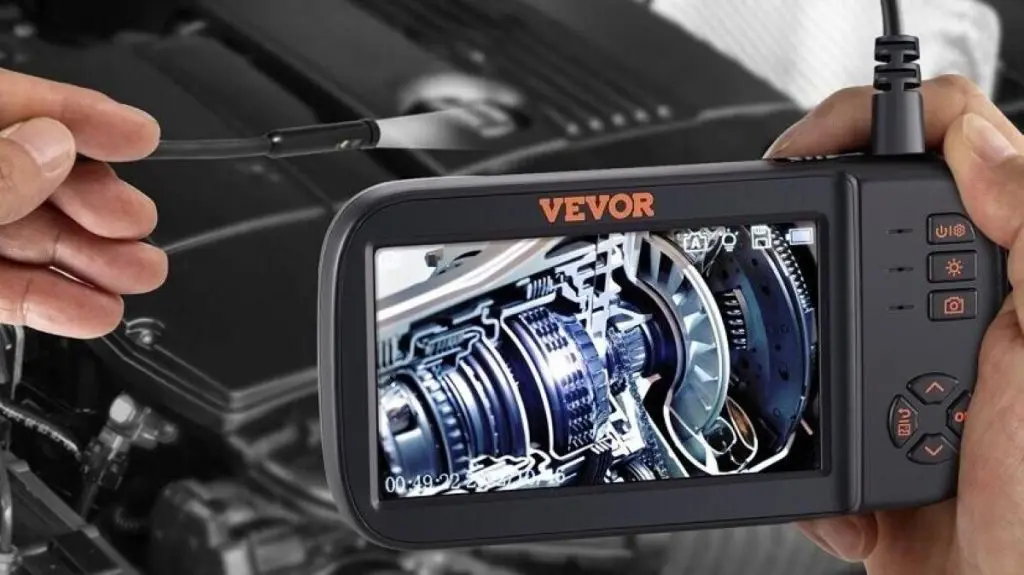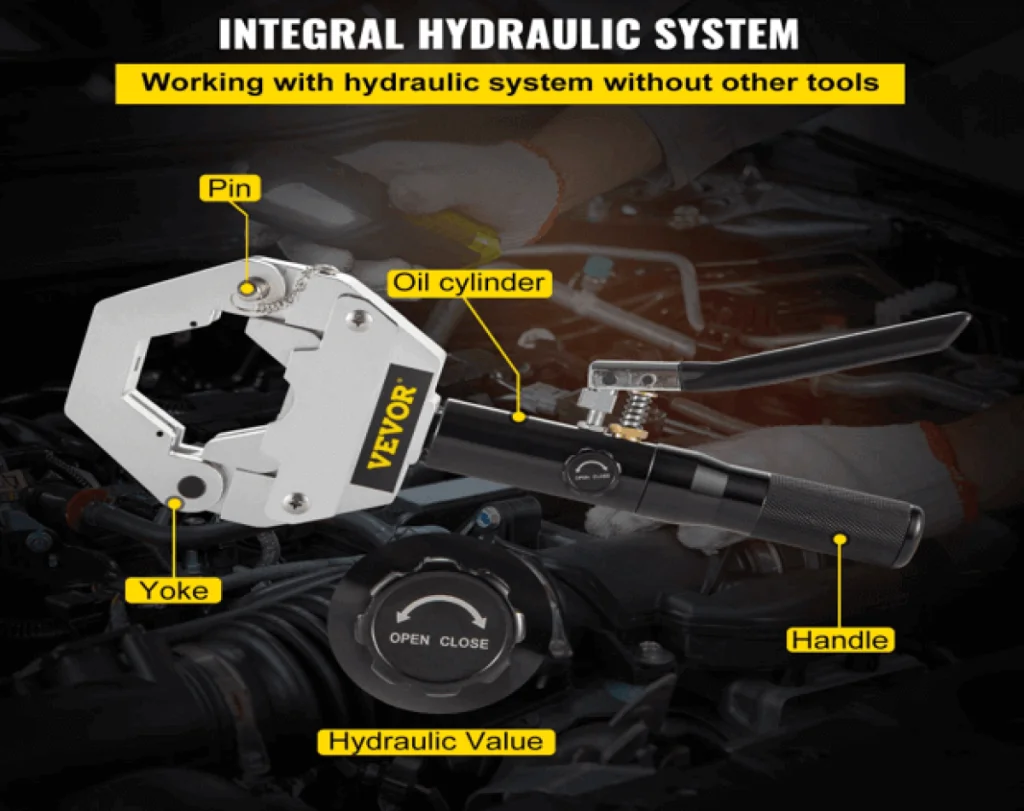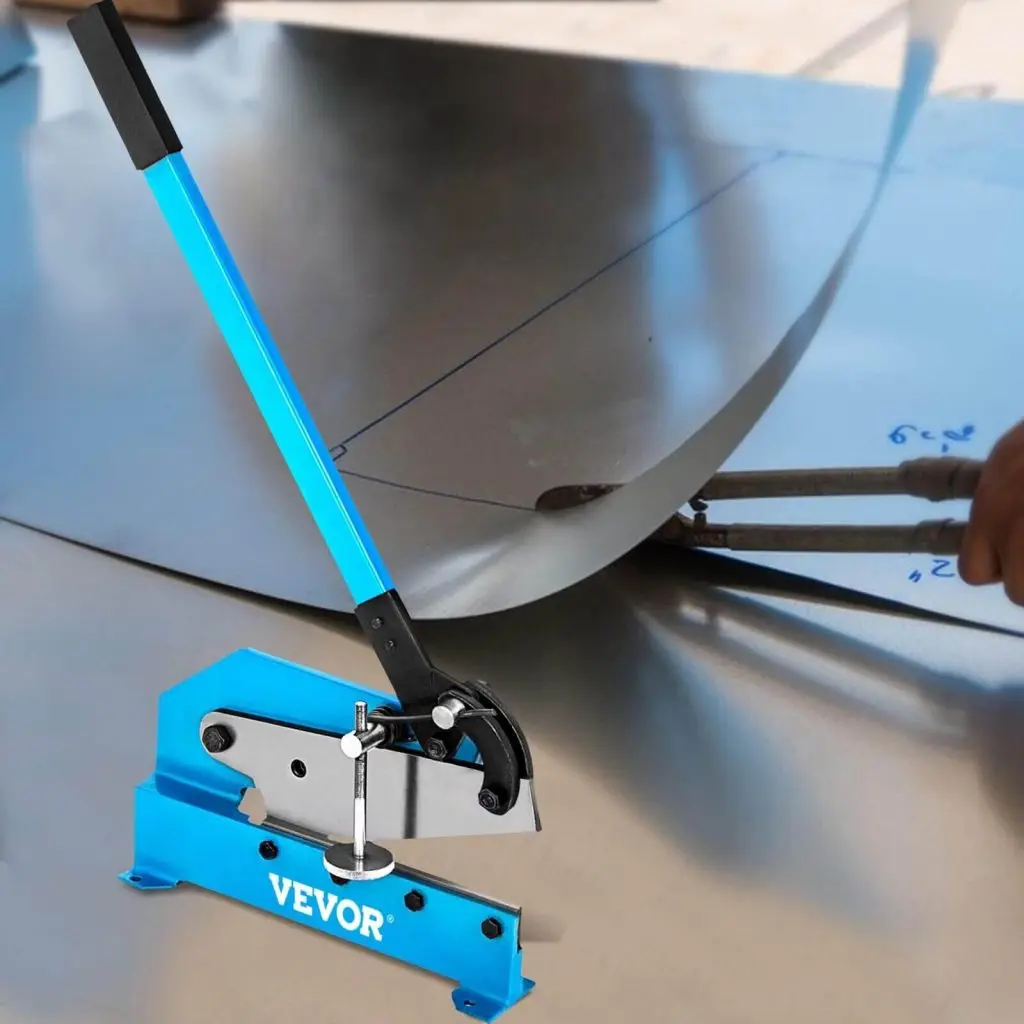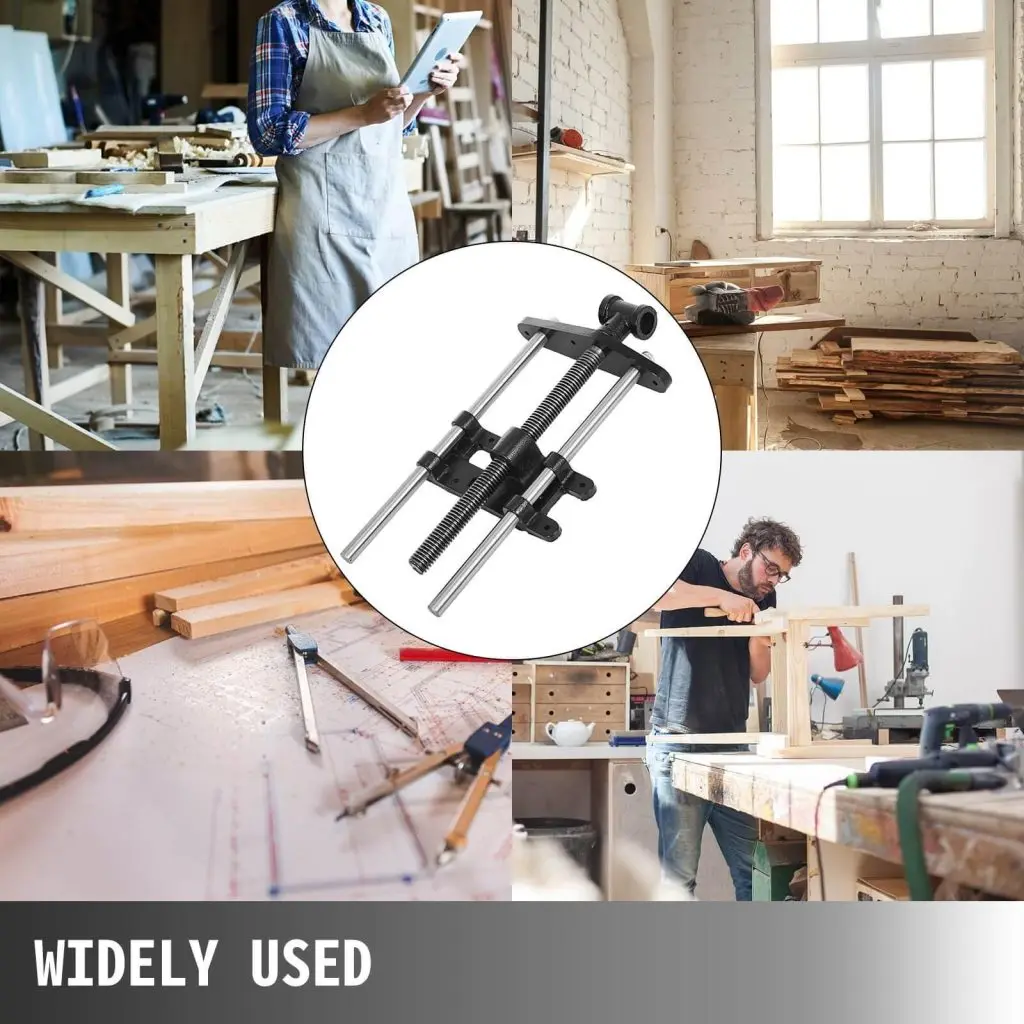If you’ve never used pneumatic tools or air compressors before, but really have no idea what you’re missing out on. Tools that use pressurized air as the main source of power are extremely reliable, powerful, and efficient.
Pneumatic tools and air-powered systems are used in a wide variety of industries, from automotive and construction to manufacturing, medical, food processing, and more. Moreover, air compressors are also ideal for DIY and at-home use, as they can be used to power nail guns and other pneumatic tools, paint your home, inflate tires, and more.
With that being said, you don’t want to purchase just any air compressor, because there are many different types, and those types also have varying features. Therefore, today we’re going to provide you with the ultimate air compressor buying guide, so you know exactly what to look out for and which model is best for you.
As you’ll see below, some of the best possible air compressors come from the VEVOR brand, they have a wide variety of options to choose from, suitable for both at-home and industrial applications.
Table of contents
What Is an Air Compressor?
To get us started, an air compressor is a special type of machine that is designed to take power and convert it into pressurized air. It draws in atmospheric air and compresses it through a variety of mechanisms, depending on the air compressor type.
The compressed air becomes potential energy that is stored within a tank, which you can then release in controlled bursts to power various pieces of equipment and tools.
In some cases, air compressors can also be used to provide continuous airflow, as opposed to storing the pressurized air in the tank. The fact that air compressors can provide reliable and consistent power for a variety of applications is exactly what makes them so useful.
Air compressors harness stored air as energy, which helps reduce the need for complex mechanical systems, allowing users to power devices efficiently and reliably. Air compressors can come in many different configurations, sizes, and types, each of which is best suited for a different type of industry and task.
What’s an Air Compressor Used For?
Before we start talking about how to choose the best air compressor for your needs, it’s worth discussing exactly what air compressors are used for.
First and foremost, air compressors are often used in the construction industry, as they can be used to power jackhammers, paint sprayers, nail guns, staple guns, and many other pneumatic tools. This allows for continuous and efficient work on job sites.
We then have the automotive industry, which often employs air compressors for a variety of tasks, such as powering pneumatic tools like air wrenches, spray painting, and inflating tires, as well as any other tasks that require a steady flow of pressurized air.
Next, air compressors are often used in manufacturing plants, as they help support assembly lines. They provide consistent pressure for machinery, therefore aiding in high-speed production. It’s all about ensuring that machines run smoothly and efficiently, therefore minimizing production delays.
For those of you at home, air compressors are great for DIYers as well. You can inflate pool toys and bike tires, use your paint sprayers, power small tools, and more, all with a simple air compressor. With that being said, you obviously need to choose the right kind of air compressor for your needs, and that’s exactly what the next section is all about.
How to Choose an Air Compressor
Choosing an air compressor requires you to have a fairly comprehensive understanding of various factors, and we’ll talk about all of these below. Let’s get to it and help you choose the best air compressor on the market.
Use
First, before you start looking at the different types of air compressors, you need to identify what their intended use is. For instance, if you are in an industrial setting, something like a centrifugal or Rotary screw compressor might be best, as they’re ideal for heavy-duty applications.
However, if you’re in an automotive shop or in a regular woodworking shop, a stationary piston compressor is generally best. They’re ideal for providing great deals of pressure for operating tools like sandblasters and impact wrenches, as well as for tire inflation.
Although DIY enthusiasts and homeowners might benefit from smaller and more portable air compressors, larger models do of course supply more power and are able to hold more pressurized air.
Type
Next, you then need to consider the different types of air compressors on the market, with reciprocating or piston compressors being one of the most common. These use pistons to draw in and compress air, and are able to deliver bursts of high-pressured air. These are best for automotive repair and workshop use.
You might also consider different types, such as rotary screw compressors, scroll compressors, centrifugal compressors, and portable compressors, each of which have their own specific benefits and drawbacks. Generally speaking, a piston-style model is best for most home applications, for automotive workshops, and woodworking alike.
Power Source
The next thing you need to consider when choosing an air compressor is the power source, which is going to be either electric or gas.
First, electric compressors are usually quiet and best for indoor use, because they don’t produce emissions, although they require an electrical outlet. For environments where air quality and noise control are essential, electric compressors are preferred.
On the other hand, we have gas compressors, which use gasoline to power the motor. These are extremely mobile as they don’t need to be plugged into a power source, but they also emit exhausts and are generally quite loud.
These are best for remote locations and construction sites. If you don’t have easy access to electricity, then you’ll want a gas-powered model.
PSI
Yet another factor you need to pay attention to when choosing an air compressor is the PSI or pound-per-square-inch rating. This determines the maximum amount of air pressure that the air compressor can deliver.
Keep in mind that the vast majority of pneumatic tools operate at roughly 90 PSI, but there are heavier applications where up to 145 PSI might be required. Also, the higher the PSI is, the bigger the job the air compressor in question can handle. However, you then also need to consider CFM, which we discussed below.
CFM
The CFM or cubic feet per minute is a measure of the volume of air that an air compressor can supply every minute. This is a critical measurement when it comes to powering tools that require a steady airflow.
The higher the CFM is, the better the air compressor in question is for heavy-duty applications, such as for running multiple tools at the same time or just for running very large tools.
Compressors with very high CFM ratings are often found in construction and industrial settings where a constant supply of high-volume air is required. On the other hand, lower CFM ratings are ideal for low-demand tools and short bursts of air.
Portability
Yet another factor that you need to consider when choosing an air compressor is whether you want a stationary model or a portable model. Of course, stationary compressors are large, but they also come with higher capacity and more power. This makes them ideal for industrial settings and workshops where they can stay in one place.
On the other hand, we have portable compressors, which are much more lightweight and compact, therefore making them ideal for moving from one job site to another.
They’re also ideal for moving around within a job site, such as on construction sites and in automotive repair shops. Although air compressors that are portable in nature are mobile, they generally have smaller tanks and lower power outputs.
Size of Tank
The next consideration to keep in mind when choosing an air compressor is how large the tank is. The larger the tank the more air it can hold, therefore reducing the need for frequent repressurizing.
Larger tanks are therefore ideal for tasks that require a continuous flow of air, such as sandblasting or spray painting. Smaller tanks are generally best for intermittent bursts of air, but also need to be refilled fairly often. That said, the smaller the tank, the more portable the unit.
Duty Cycle
Finally, you then need to pay attention to the duty cycle, which refers to how long an air compressor can operate continuously before it needs to cool down.
If you get a continuous-duty compressor, this is ideal for extended use without breaks.
They are often found in factories and workshops. We then have intermittent-duty compressors, which are best for occasional work that has you taking a lot of breaks in between uses.
Introducing VEVOR Air Compressors
Since we’re talking about choosing the best air compressors that the market has to offer, we have to provide you with a couple of great options.
VEVOR 80 Gallon Air Compressor

The VEVOR 80 Gallon Air Compressor is an efficient and powerful tool that is designed for heavy-duty use. It comes complete with a 6.5 horsepower dual-stage motor that is able to generate a maximum pressure of 145 PSI. This makes it ideal for a wide variety of highly demanding tasks and for powering many different pneumatic tools.
Recommended For Your Project
Furthermore, it also features a fairly impressive airflow of 15.5 CFM AT 90 PSI, which means that it’s both reliable and fast. It allows for smooth operation even when plenty of air pressure is required. Furthermore, the fact that the tank features an 80-gallon capacity means that it doesn’t need to be pressurized very often.
The tank itself is made with 4mm high strength steel plates, therefore making it very resistant to leaking and overall quite durable. This is an oil-free model that requires minimal maintenance and operates at just 86 decibels, which means that it doesn’t make much noise either.
VEVOR 6.3 Gallon Air Compressor
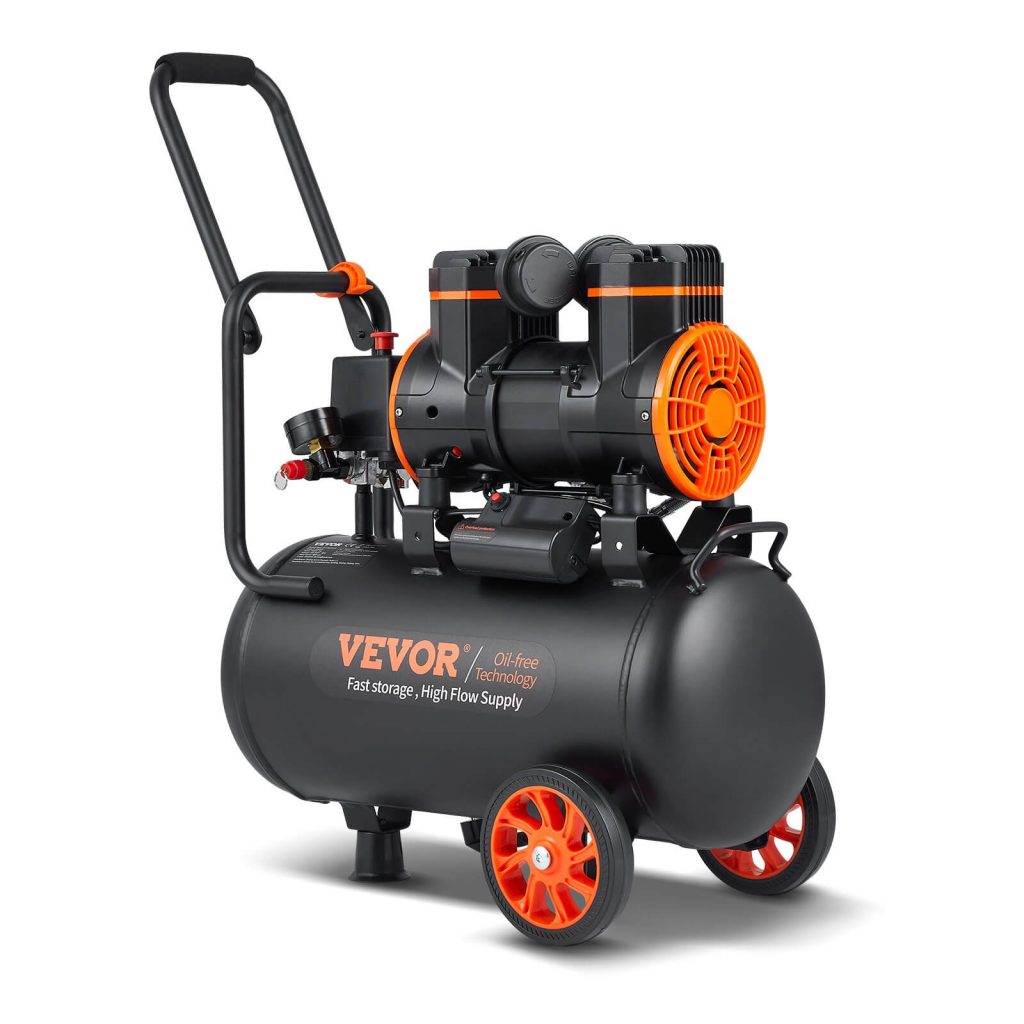
We then have the VEVOR 6.3 Gallon Air Compressor, a portable and powerful model that doesn’t produce much noise. It features a 1450-watt oil-free motor that can reach speeds of up to 3500 RPM, delivering 3.35 CFM at 90 PSI. It’s ideal for spray guns, impact wrenches, and nail guns.
Recommended For Your Project
Operating at just 70 decibels makes it extremely quiet, which is possible thanks to its dual silencers. Furthermore, it features a 6.3-gallon tank, which allows for a steady air supply for smaller tasks. The fact that it doesn’t use any oil means that the air it produces is very clean, making it ideal for a variety of applications that require pure air.
This unit is built with a three-layer structure combined with temperature resistance silicone, making it extremely durable. It also comes with automatic overheating protection and dual cooling fans. Thanks to its ergonomic handle and dual casters, it’s also very portable.
FAQs
How often should the tank on my air compressor be drained?
You should never leave the tank on your air compressor fault. It should be drained after each use or on a daily basis, as this prevents moisture build-up.
Can air compressors be used to power multiple tools simultaneously?
Yes, there are air compressors that can be used to power multiple tools simultaneously, but you need to ensure that it has enough CFM and PSI for both tools.
How safe is it to use an air compressor in cold weather?
Air compressors perform perfectly well in cold temperatures, and it doesn’t really affect safety at all. However, cold weather can affect performance as it can reduce battery life and thicken lubricants.
Air Compressor Ultimate Buying Guide: Final Thoughts
Now that you know exactly how to choose an air compressor that is best suited for your needs, you should have no trouble finding a model that works for you. Remember, pay attention to factors such as tank capacity, CFM, PSI, and the type of air compressor you’re going for.
Of course, the type you choose depends on what your intended tasks are. With all of that being said, whatever the case may be, VEVOR is always one of your top options as far as purchasing air compressors goes. VEVOR air compressors are durable, efficient, and affordable too!

